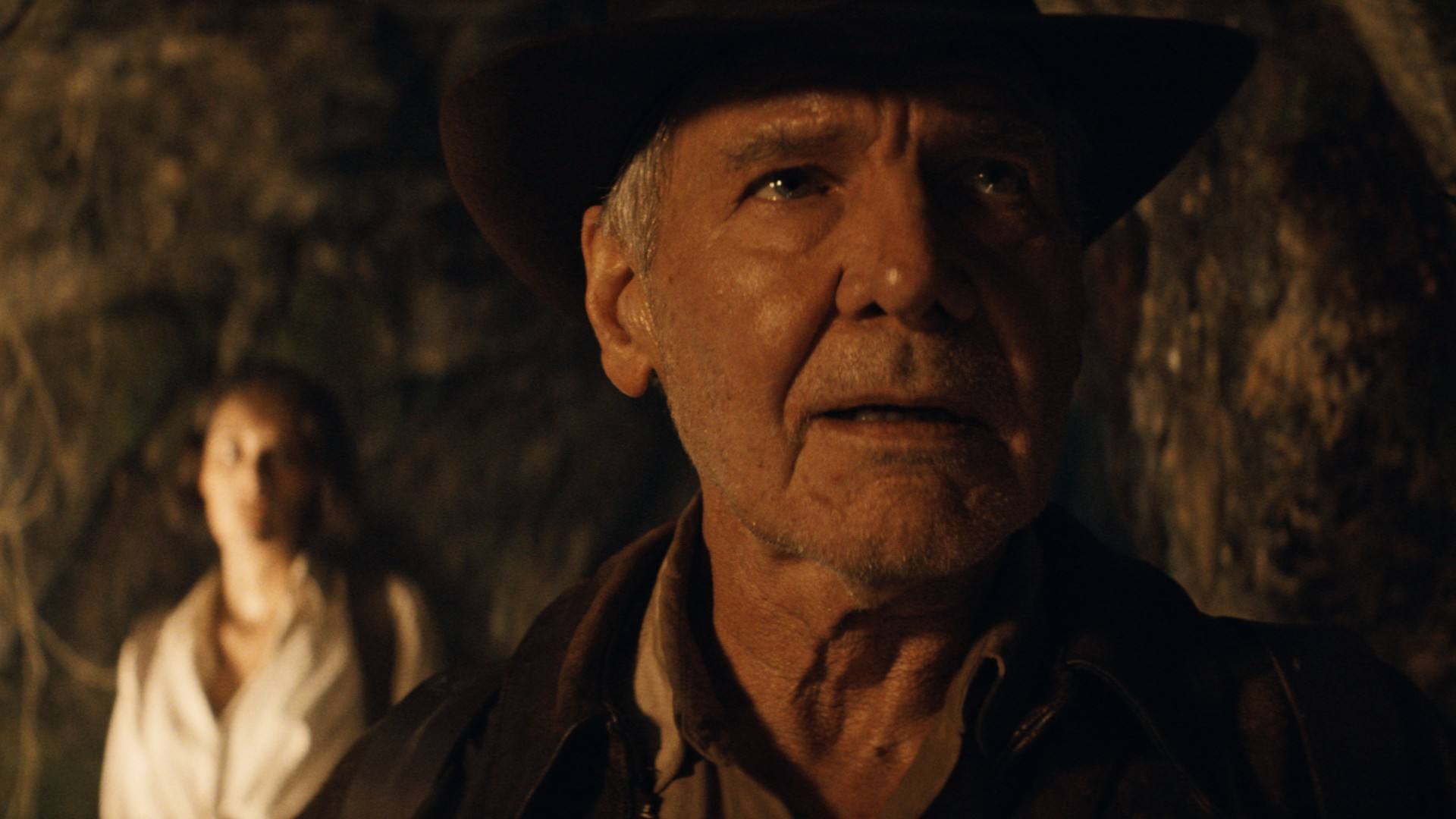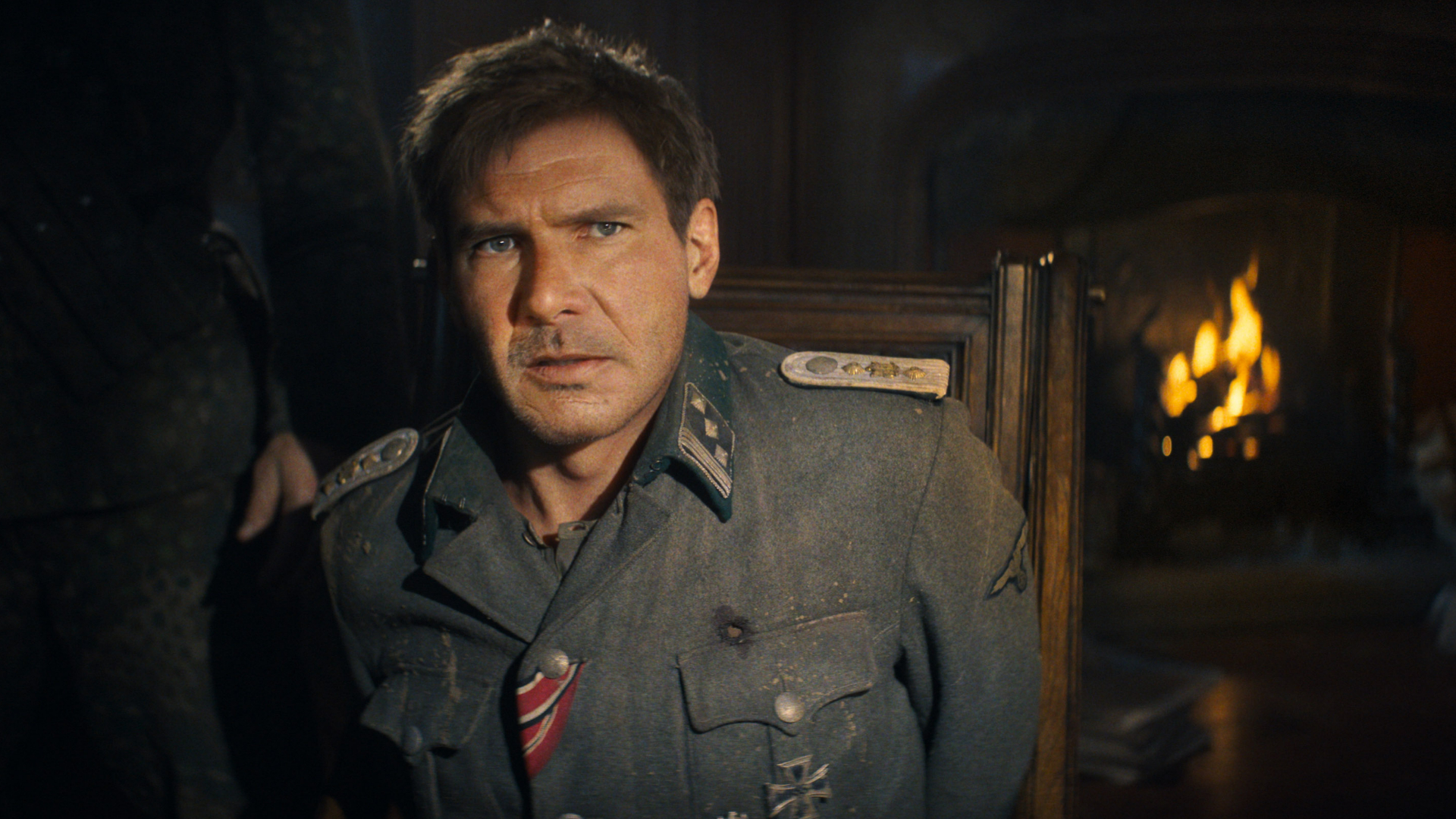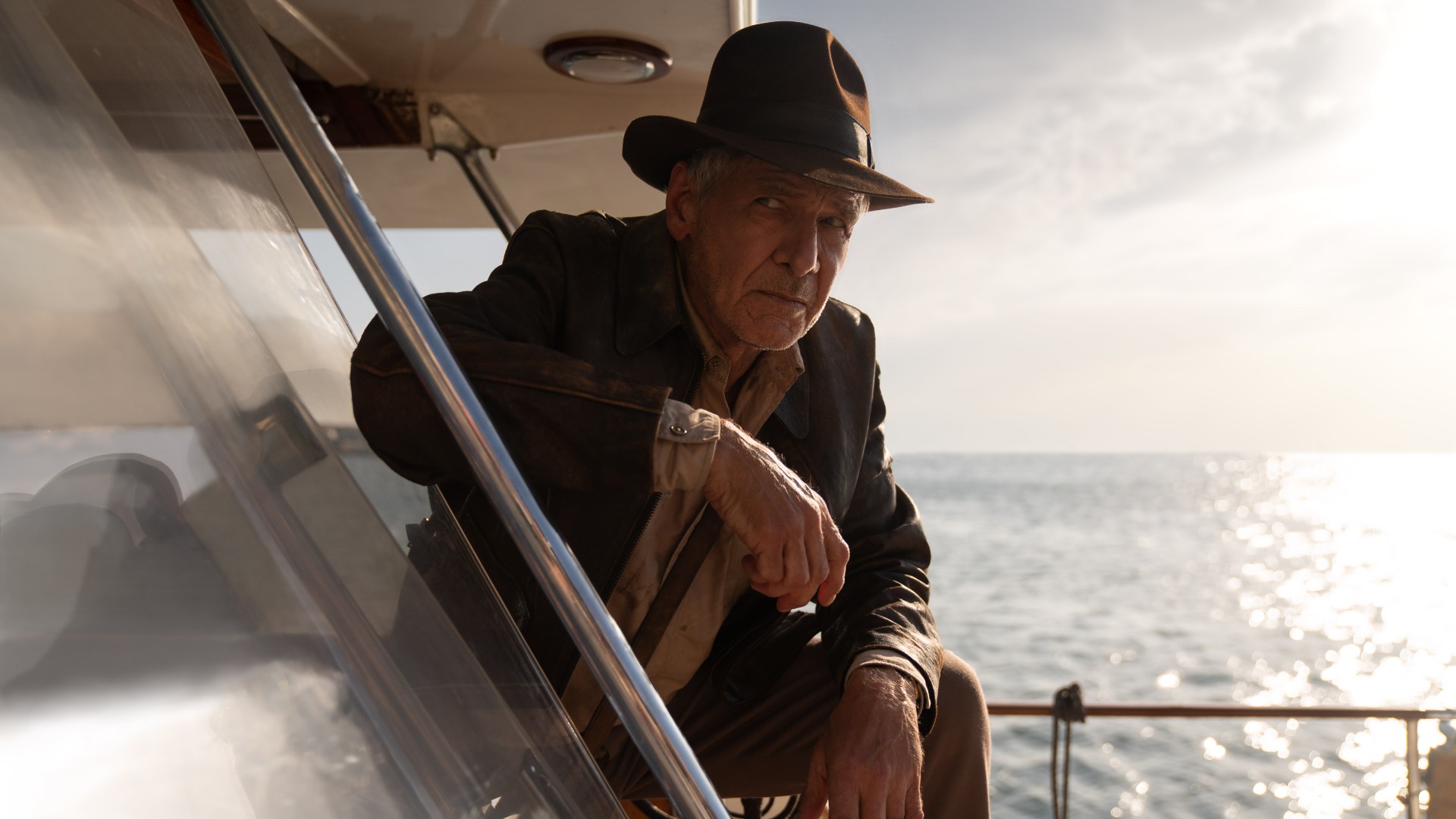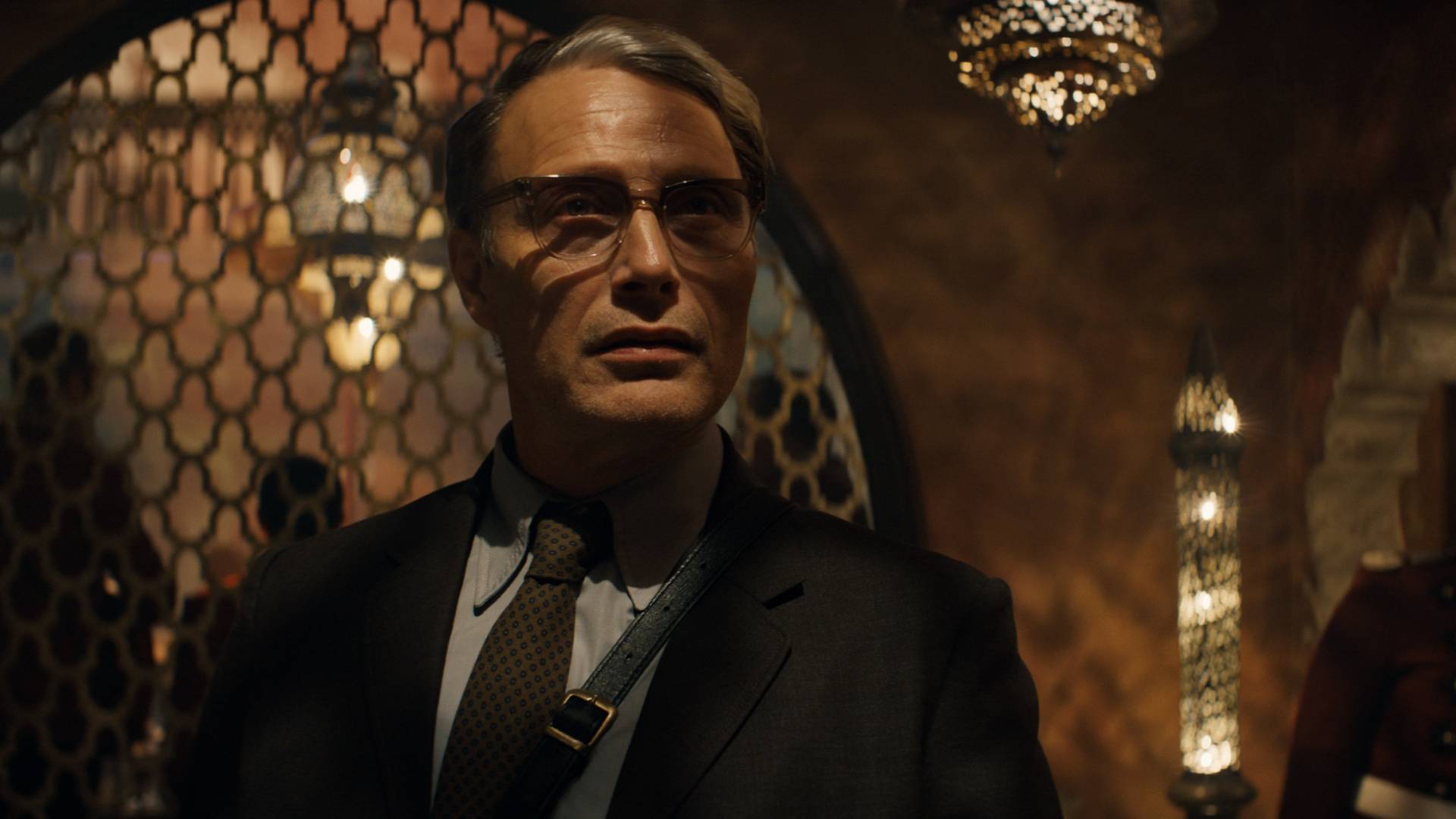
Warning: the following contains spoilers for Indiana Jones and the Dial of Destiny. Turn back now if you haven't seen the new movie yet!
How do you say goodbye to Indiana Jones? Indy isn't just an iconic character in his own right: he's played by one of Hollywood's finest film stars, is the symbol of a franchise built by two of cinema's most influential creatives – George Lucas and Steven Spielberg – and has been part of multiple generations' worth of moviegoing. In short: saying goodbye to a legend is tough, but that was the challenge in front of Indiana Jones and the Dial of Destiny, billed from the start as the final adventure for Harrison Ford's famed explorer.
On a personal level, I knew this film would be an emotional one for me. I grew up with Indiana Jones, beginning with devouring the junior novelizations before sitting rapt in front of the films, and that whip-slinging, fedora-wearing, charming adventurer with a heart of gold and a sly smile was a staple of my childhood. I wasn't sure I was ready to say goodbye to Indy, especially when there's always a risk that the grand farewell falls short of expectations.
Indeed, many were dissatisfied with Kingdom of the Crystal Skull (and I have to say that I am not one of those people), but the film did wrap up Indy's adventures fairly definitively; the adventurer married Karen Allen's Marion Ravenwood and headed into the metaphorical sunset with his wife and son at his side.

Any fears that Dial of Destiny had nothing left to explore, though, are immediately put to rest. The classic Indy we all remember is the young man punching Nazis in the '30s, and we get to see him one last time in the new movie's thrilling opening sequence. When we shift to '69, though, we're immediately confronted with the film's central concern: how does an old-fashioned hero like Indiana Jones adjust to the rapid changes of the 20th Century? It's a question previously left unexplored, and one I didn't realize needed answering until now.
We catch up with a Dr. Jones on the brink of retirement – against the backdrop of Moon Day, the dawn of a new era – startling awake on his couch because his young neighbors are playing their music too loud. It's an obvious juxtaposition: that giant leap for mankind has left Indy behind.
He's also getting divorced from Marion, and as we find out later in the movie, his son Mutt was killed in action in the Vietnam War. In his empty apartment, no epic quests on the horizon, Indy no longer seems to have a place in the world. Of course, that's only until his estranged goddaughter Helena Shaw shows up and Indy dons that fedora again. This isn't a journey for the sake of it, though – the fivequel focuses on a three-dimensional, multifaceted Indy who speaks frankly about his regrets and the toll the years have taken, picking up on threads laid out in the previous films.

Refreshingly, Dial of Destiny never nabs the low-hanging fruit of poking cheap fun at Indy's age, either. He's not the stereotypically grumpy old man, but the Indy we know and love – just a bit grayer than when we saw him last. When I thought I couldn't adore Indy any more, this film gave me a whole new perspective on the quintessential explorer; it's equal parts classic adventure and moving character study. He's not Indiana Jones the icon, but Indy the man, isolated, struggling and needing the love and support of his friends and family. Tracking Indy from his childhood – as seen in the wonderfully fun opening of The Last Crusade, starring River Phoenix – all the way to his twilight years feels full circle, and I can't imagine the series ending any other way. It's the closure that Kingdom of the Crystal Skull didn't quite give us.
There are also certain criteria an Indiana Jones movie needs to meet, and this film nails every point. Mystical artifact with extraordinary powers? Check; the Antikythera and its time-bending abilities is a fascinating – and dangerous – MacGuffin. Sinister villains also need to be in pursuit, and Indy is at his best when he's defeating Nazis. Enter Mads Mikkelsen's Dr. Voller, a cold and chilling bad guy who, like every Indy villain, is eventually undone by his own arrogance. Voller believes he can conquer time itself in the pursuit of bringing the Nazis a dreaded victory, but ultimately he faces the same fate as those who believed they could possess the Ark of the Covenant, or steal the Holy Grail: a painful, violent death. It's not an Indiana Jones movie if the bad guy isn't defeated by the very forces he seeks to control.

Every Indy movie also needs to have an absolutely wild ending, and in that arena, Dial of Destiny delivers in spades. I never thought I'd see Indiana Jones travel back to 212 BC – and not only was it bonkers in the best way, but it also allowed for another incredibly moving moment when Indy considers staying behind in ancient times. Again, it's clear that he feels he no longer fits into his own life: luckily, Helena is on hand to, erm, persuade him otherwise. When, in the present day, Helena tells her godfather he's back where he belongs, Indy asks, "For who?" in a moment that just about shattered my heart.
The final few moments of the film, though, put the perfect bow on the franchise once and for all. Marion returns, asking Indy if he's truly back, and we see that the broken man we've spent the last two and a half hours with has regained his old spirit. They share a sweet callback to Raiders of the Lost Ark ("where doesn't it hurt?") while the rest of Indy's family – Helena, Sallah, and his children – head off together to get ice cream. Finally, the movie begins to iris out, holding on that iconic fedora hanging on the fire escape. Indy has literally hung up his hat for good.
Or has he? The very final moment of the movie is the archaeologist grabbing his fedora back; Indy has more adventures left in him. Granted, they're ones we'll never see, but there's still something incredibly warm and fitting about the story ending with a promise that Indy's adventures will continue. He is the immortal icon of an explorer, after all.
The way to say goodbye to Indiana Jones, then, is not to say goodbye at all: thanks to Dial of Destiny, we'll always be able to think of Indy out there somewhere, on those epic adventures of his – forever.
For even more on Dial of Destiny, check out our pieces on:
- Our Indiana Jones and the Dial of Destiny interview with the cast and director
- Harrison Ford and James Mangold's favorite Dial of Destiny memory
- Kathleen Kennedy and Frank Marshall look back on over 40 years of Indiana Jones
- Our Indiana Jones and the Dial of Destiny Cannes interview
- Why Harrison Ford doesn't want to reflect on his old movies
- Mads Mikkelsen is desperate to play a zombie
- Mads Mikkelsen recalls meeting Harrison Ford
- Does Indiana Jones and the Dial of Destiny have a post-credits scene?
- The Indiana Jones and the Dial of Destiny ending explained
- Kathleen Kennedy reveals the Rey and James Mangold Star Wars movies are linked







